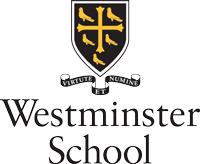As a result of the increased standard deduction, in recent years most taxpayers no longer itemize their income tax deductions and, therefore, cannot take advantage of the charitable deduction. However, a qualified charitable distribution (QCD, also referred to as the IRA Charitable Rollover) can provide the tax savings of a charitable deduction even if you don’t itemize.
The IRA qualified charitable distribution, or QCD, is a great way to make a tax-free gift to Westminster School. Even better, if you have a required minimum distribution (RMD), your QCD gift will reduce the taxable amount you are required to withdraw.
When you make a IRA QCD, you won’t need to include the transferred funds in your income for that year and therefore will not pay any tax on them. If you were to withdraw the funds yourself and then make a gift to us, you would have to include the withdrawal in your income.
Another great feature of a charitable IRA QCD is that it counts toward the amount you are required to withdraw from your IRA for the year—your “required minimum distribution.” If you do not need these funds for your own use, you can meet your required distribution by making gifts to Westminster School and your other favorite charities and avoid paying income tax on these withdrawals.
